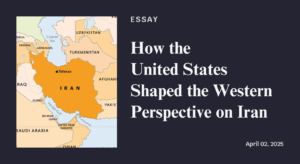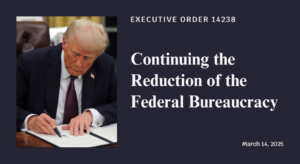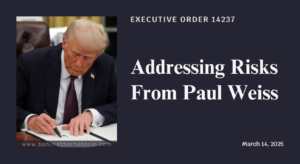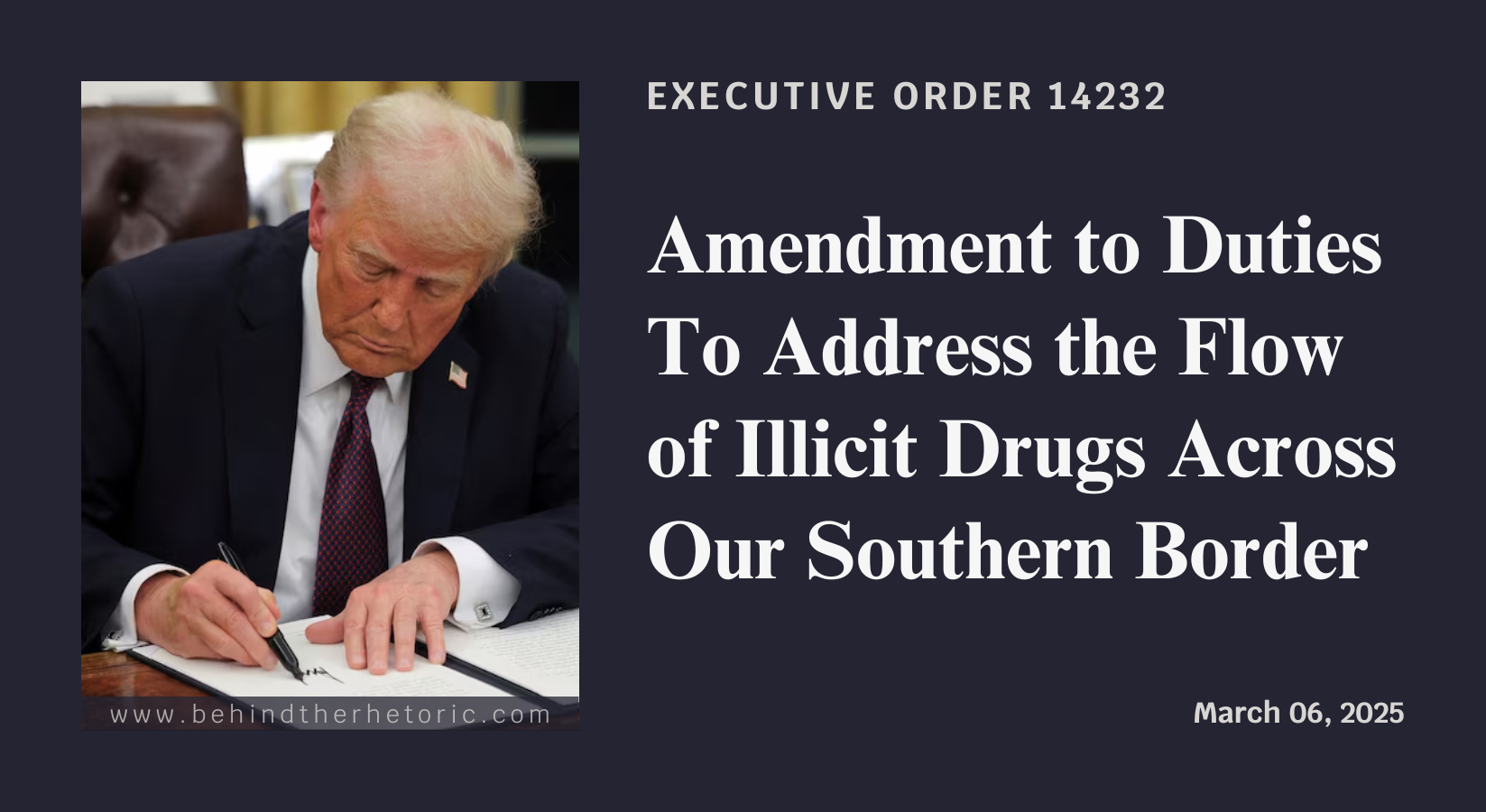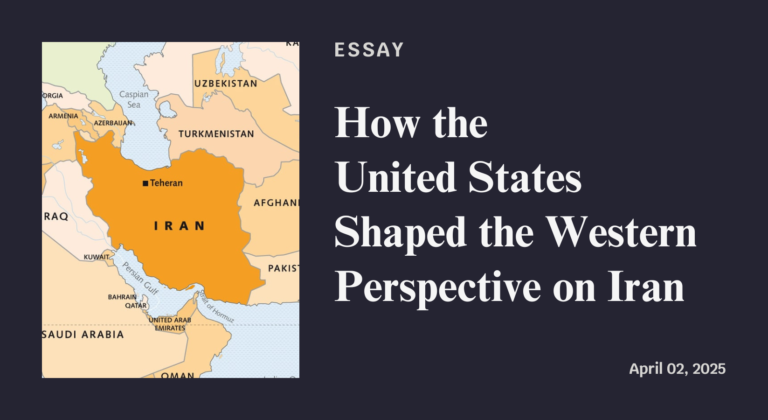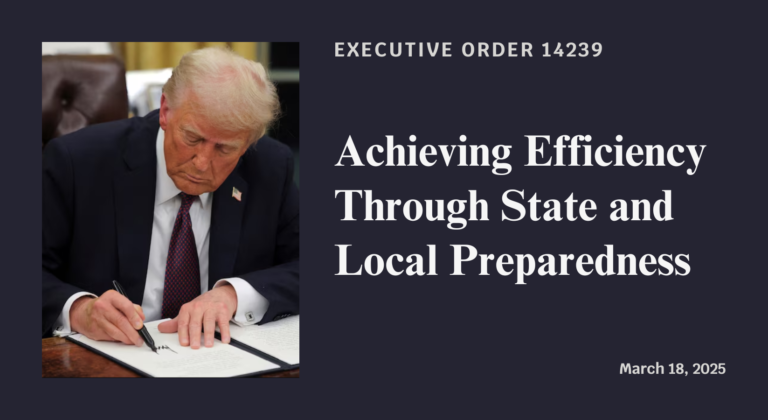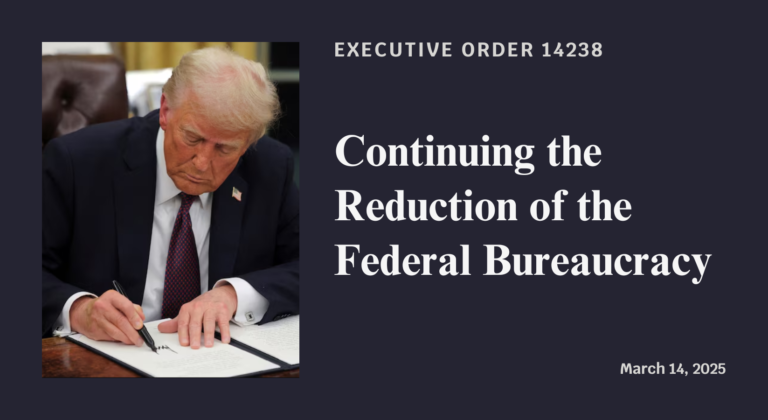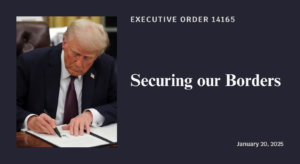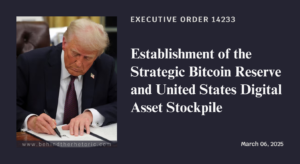Executive Order 14232
Amendment to Duties To Address the Flow of Illicit Drugs Across Our Southern Border
Signed on March 06, 2025
On March 06, 2025, President Trump signed Executive Order 14232, which amends tariffs imposed by Executive Order 14194, reducing certain trade penalties on Mexican goods. The order exempts automotive parts and components from additional tariffs and lowers the duty rate on potash from 25% to 10%. These changes take effect on March 7, 2025, and are framed as an effort to protect U.S. industries from supply chain disruptions while maintaining trade restrictions meant to curb illicit drug trafficking.
🔗 Read the Executive Order on the Federal Register
🔗 Read the White House Announcement
What You Should Know
This amendment reverses part of Trump’s previous tariff hike on Mexican imports.
Just over a month after imposing high tariffs on goods from Mexico under Executive Order 14194, this amendment partially rolls back those measures. Automotive components, which are crucial to U.S. manufacturing and trade under the U.S.-Mexico-Canada Agreement (USMCA), will no longer be subject to additional tariffs. Potash, a key fertilizer ingredient, will see its tariff rate reduced from 25% to 10%. This signals a retreat from the administration’s initial hardline stance, likely due to industry backlash over supply chain concerns and rising costs.
The administration acknowledges that its original tariffs harmed U.S. industries.
The justification for this amendment highlights the importance of North American supply chains, particularly in the automotive sector. By exempting auto parts and lowering duties on potash, the administration is conceding that the previous tariff structure was causing economic strain on domestic industries. This contradicts the original claims that the tariffs would primarily harm Mexico while protecting U.S. businesses.
The new policy maintains selective economic pressure while reducing disruption.
Instead of eliminating all tariff hikes, the administration is making targeted reductions to lessen the impact on politically significant industries. While this change benefits sectors like automotive manufacturing, it does not address broader concerns over increased costs for U.S. consumers and businesses that rely on Mexican imports. Other industries affected by the tariffs remain under economic pressure, and Mexico is still incentivized to negotiate further trade adjustments.
There is little evidence that these tariffs have impacted illicit drug flows.
The administration initially justified the tariffs as a way to curb drug trafficking from Mexico. However, there is no economic or law enforcement data to support the idea that trade restrictions reduce the flow of illicit drugs. Drug smuggling operations are largely independent of legal trade routes and are driven by demand within the U.S., not by tariff policies. This amendment suggests that the administration is adjusting course to protect economic interests rather than addressing the stated goal of reducing drug trafficking.
This is a political recalibration rather than a major policy shift.
By selectively easing tariffs on essential imports, the administration is attempting to balance its tough-on-Mexico rhetoric with economic realities. The rollback is a quiet admission that the initial tariff policy was poorly designed, but it does not represent a full reversal. Instead, the administration is making strategic adjustments to avoid backlash from key industries while maintaining the appearance of economic pressure on Mexico.
Who Wins?
The U.S. automotive industry
By exempting automotive parts from tariffs, this order directly benefits U.S. automakers and suppliers who rely on cross-border trade. The automotive sector is deeply integrated across North America, and additional tariffs would have raised costs for manufacturers and consumers alike. This amendment helps maintain stability in the industry and prevents supply chain disruptions.
U.S. farmers and agricultural businesses
The reduction of tariffs on potash is a win for U.S. farmers, who rely on the fertilizer ingredient to maintain crop yields. The initial tariff increase raised concerns about higher costs in the agricultural sector, and this rollback helps mitigate those effects. This decision signals recognition of the importance of agricultural trade with Mexico.
The Mexican government and trade negotiators
While Mexico remains subject to some tariffs, this amendment is a diplomatic victory, showing that economic pressure from the initial order was unsustainable. The rollback provides leverage for Mexico in future trade discussions and demonstrates that the U.S. is willing to adjust its stance when economic consequences become too severe.
Who Loses?
Other industries still affected by tariffs
While auto parts and potash are exempted, other sectors that rely on Mexican imports remain burdened by increased costs. Industries such as textiles, food processing, and electronics manufacturing continue to face higher tariffs, leading to potential price hikes for consumers and supply chain disruptions.
Small businesses and consumers
Many small businesses depend on affordable imports from Mexico, and the selective rollback does little to ease the broader economic impact of Trump’s trade policies. Consumers may still face higher prices on goods affected by remaining tariffs, particularly those that are not politically prioritized like automobiles and agriculture.
The credibility of the administration’s trade strategy
This amendment undermines the original rationale for the tariff increases, revealing them as more of a political maneuver than an effective policy tool. The quick reversal suggests poor planning and a lack of understanding of trade dynamics, weakening the administration’s credibility on economic issues.
Executive Order 14232 is a clear course correction in response to economic and industry backlash. While framed as a strategic adjustment, it exposes the flaws in the administration’s initial tariff policy, which failed to account for the interconnected nature of North American trade. The rollback on auto parts and potash benefits key industries, but many businesses and consumers remain burdened by tariffs that serve more as political posturing than effective economic strategy. This amendment acknowledges the unintended consequences of Trump’s trade war tactics, but it does not undo the broader economic damage caused by his administration’s approach to tariffs.
Take Action
Stay informed about the real impact of tariffs on the U.S. economy.
Trade policies often have complex consequences, and political rhetoric can obscure the true effects. Research how tariffs affect supply chains, consumer prices, and industry competitiveness to better understand the broader implications of these policies.
Support policies that promote fair and balanced trade agreements.
Tariffs should be used strategically, not as a blunt instrument for political leverage. Advocate for trade policies that protect U.S. industries while fostering stable economic relationships with key partners like Mexico.
Hold elected officials accountable for the economic consequences of their policies.
Policymakers should be transparent about the real impact of tariffs and trade restrictions. Contact your representatives to demand evidence-based trade policies that prioritize economic stability and consumer affordability.
Trade policies can have significant ripple effects on industries, consumers, and international relations. It’s essential to look beyond political talking points and examine the actual economic impact of these decisions. Stay informed, challenge misinformation, and push for trade policies that serve the long-term interests of the American economy.
